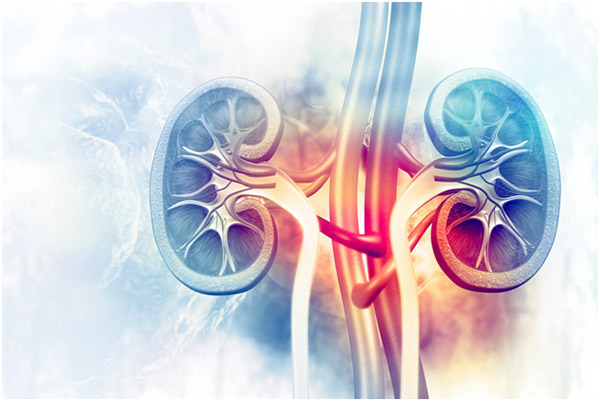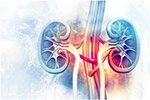
March marks National Kidney Month. Kidney disease is the 9th leading cause of death in the U.S.1 With more than 1 in 7 Americans having kidney disease, we raise awareness about kidney health. Our kidneys are vital to human life, performing crucial functions to filter out toxins, produce red blood cells, and regulate pH. They filter about half a cup of blood every hour, creating urine from harmful and unnecessary waste.
In the early stages of kidney disease, you may have a few signs or symptoms that go unnoticed until the condition is advanced. If you or a loved one are at risk for kidney disease, an imaging test can provide vital information about your kidney health. A kidney scan will check how your kidneys look and function. Healthcare providers can also call this test a renal scan, imaging, or scintigraphy.
Our kidneys filter waste and excess fluids from our blood. Chronic kidney disease can cause dangerous fluid, electrolytes, and wastes to build up in your body. Early detection might help prevent kidney disease from progressing to kidney failure.
Technology in the imaging field has exploded in the last 100 years. Despite all the advancements in different diagnostic tools, age-old imaging tests still play a significant role in diagnosing kidney disease.
Computed Radiography (Digital X-ray)
The film from an x-ray gets used during the initial assessment for kidney stones. It measures the shape and size of the stone and the kidney.
Ultrasonography (Ultrasound)
When evaluating a person's kidney, an ultrasound measures the size and appearance of the kidney to detect tumors, congenital anomalies, swelling, and blockage of urine flow.
Computed tomography (CT scan)
CT scan is a type of X-ray that can produce cross-sectional images of the kidneys. CT scans can help detect lesions, abscesses, obstructions, kidney stones, and fluid accumulation around the kidneys.
Magnetic resonance imaging (MRI)
MRI uses magnetic waves to produce high-contrast images without radiation. An MRI gives the same information as a CT scan regarding the kidney.
March brings awareness to kidney health and encourages people to support kidney disease research and take steps to keep their own kidneys safe and healthy. Having your kidneys
checked regularly gives you the best chance of finding and treating kidney disease early.
Our mission at Houston MRI ® & Diagnostic Imaging is to provide patients and physicians affordable medical diagnostic imaging in a warm and patient-friendly environment. It is our goal to make the medical imaging procedure as pleasant as possible. Our promise to our communities is "hospital quality imaging without the hospital costs" with efficient service to both our patients and physicians.
1. https://www.cdc.gov/kidneydisease/publications-resources/ckd-national-facts.html



